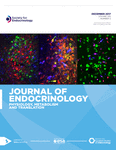- Made available online as an Accepted Preprint 7 January 2016
Current understanding of metformin effect on the control of hyperglycemia in diabetes
- Hongying An and
- Ling He⇑
- Divisions of Metabolism and Endocrinology, Department of Pediatrics, Johns Hopkins University School of Medicine, 600 North Wolfe Street, Baltimore, Maryland 21287, USA
- Correspondence should be addressed to L He; Email: heling{at}jhmi.edu
Abstract
Metformin is a first-line oral anti-diabetic agent that has been used clinically to treat patients with type 2 diabetes for over 60 years. Due to its efficacy in therapy and affordable price, metformin is taken by more than 150 million people each year. Metformin improves hyperglycemia mainly through the suppression of hepatic gluconeogenesis along with the improvement of insulin signaling. However, its mechanism of action remains partially understood and controversial, especially in regard to the role of AMPK in metformin's action and the mechanism of AMPK activation. In this review, we discuss recent advances in the understanding of metformin's suppression of hepatic glucose production and the mechanism related to the improvement of insulin signaling.
- Received in final form 23 December 2015
- Accepted 6 January 2016
- Made available online as an Accepted Preprint 7 January 2016
- © 2016 Society for Endocrinology











